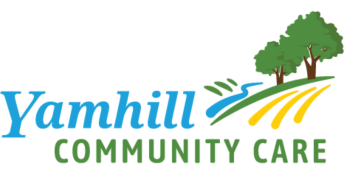
A healthy future through prevention and wellness
By intervening early we can change behaviors and achieve community-wide wellness for generations to come. That’s why we support programs that are proven to prevent behaviors that can lead to unhealthy living, but instead encourage a positive way of life.
We work for a healthy community
Yamhill Community Care formed the Community Prevention and Wellness Committee to improve health and wellness in our community by focusing on prevention. After consulting with Oregon Research Institute Prevention Scientist Dr. Anthony Biglan, the CPW Committee chose to support three key intervention programs:
- PAX Good Behavior Game ̶ Working to increase graduation rates and lower substance abuse
- Positive Family Support ̶ Improving the family-school connection and parent engagement
- Healthy Futures ̶ Reducing tobacco use among pregnant women
After investing in these programs, the CPW continues to support other evidence-based prevention programs in the schools and community. The CPW offers a regular grant cycle and makes funding decisions based on alignment with current Community Health Improvement Plans and identified local need.
PAX Good Behavior Game changes classroom behavior
Currently in six Yamhill County school districts, the PAX Good Behavior Game uses a reward system to improve classroom behavior among K-8 students working in small groups. When the students work cooperatively with little disruptive behavior, they earn small rewards like extra recess time. The program proven to reduce disruptive behavior, improve student focus and allow teachers to focus more on instruction and less on discipline.
Success shows in proven outcomes
The PAX Good Behavior Game has been used in classrooms across the world for the past 20 years and studies have shown the program to be highly effective in increasing graduation rates and in lowering substance abuse, delinquency and even suicidal ideation rates.
Yamhill County elementary schools have been participating in the PAX Good Behavior Game since 2016 with positive results. Teachers report improved classroom behavior and a more positive and nurturing school environment. You can learn more by downloading the 2016-17 and 2019 PAX Good Behavior Game Assessments reports below.
For more information about PAX Good Behavior Game, contact Yamhill County Public Community Health and Wellness Coordinator Gene Biggs at biggsg@co.yamhill.or.us.
PDFs:
Download the Yamhill Community Care Focus Group Report
Download the Executive Summary of YCCO Focus Group Report
Download the ORI-The PAX Good Behavior Game, Implementation in Yamhill County
Positive Family Support encourages parent involvement
Improving the family-school connection and increasing parent involvement are key areas of focus for the Positive Family Support program. Designed by Arizona State University (ASU) REACH, the program helps teachers set expectations and gain parent support through program materials, communication strategies and training.
Funding from the Community Prevention and Wellness Committee in the amount of $106,738 has allowed three Yamhill County schools to participate in the program. Duniway Middle School, Patton Middle School and Willamina Middle School have all participated in the program with positive results. You can learn more about their success by watching the video below.
For more information about the Positive Family Support Program, contact Yamhill County Public Community Health and Wellness Coordinator Gene Biggs at biggsg@co.yamhill.or.us.
Traditional Health Workers
If you have any barriers that prevent you from keeping good health, Traditional Health Workers (THWs) can work with you one-on-one. They provide some health and mental health services. They also connect you with local people and resources.

